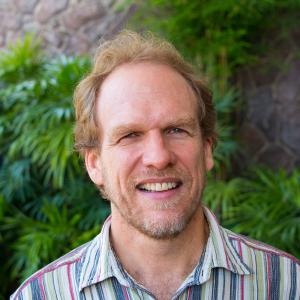
Small-scale fisheries (SSF) account for at least 40 percent of the global catch from capture fisheries and are relied upon, at least in part, by almost 500 million people for their livelihoods. The first sale of the catch generates an estimated USD 77 billion in annual revenue.
Yet the socioeconomic and environmental contributions of this vast subsector, which ranges from individuals fishing on foot to those on semi-industrial vessels, have historically been underreported and underestimated. As a result, there is a lack of adequate support at national and local levels for small-scale fishers, so their potential to improve food and nutrition security, gender equity and local economies has stayed untapped.
In 2023, WorldFish played a key role in closing the information gap through landmark research publications that are guiding global communities toward unlocking the full potential of small-scale fisheries.
Illuminating Hidden Harvests
Illuminating Hidden Harvests (IHH) is the most comprehensive, systematic research effort to date to reveal diverse contributions from SSF. Jointly researched and published by WorldFish, the UN’s Food and Agriculture Organization (FAO) and Duke University, it contains contributions from more than 800 authors across the globe and is based on 58 country case studies.
The first international instrument dedicated to leveraging the benefits of SSF study was the Voluntary Guidelines for Securing Sustainable Small-Scale Fisheries (SSF Guidelines) in 2014. As the follow-up to the SSF Guidelines, IHH provides a comprehensive, global understanding of the contributions of small-scale fisheries to sustainable development.
Leading the research on nutrition for the study, WorldFish team found that the fish currently landed by SSF globally represent half of the recommended nutrient intake of omega 3 fatty acids for 987 million women. The healthy fats that fish provide contribute to women’s health, healthy pregnancies and infant development. Small-scale fish production also represents more than 20 percent of the recommended intake of calcium, selenium and zinc for 477 million women.
However, to sustain or sustainably increase these and other substantial benefits, there is an urgent need to effectively manage SSF in the face of increased environmental and fishing pressure. The IHH study calls for greater recognition of the role of SSF and for this recognition to be reflected in supportive policies that allow for improved productivity, sustainability and equity.
Devising Small-Scale Fisheries Co-Management Strategies
Two key findings of the IHH report were that (1) fishers and fish workers see themselves as critical contributors to the outcomes of the SSF Guidelines, and (2) co-management, while central to a sustainable future for SSF, is likely implemented for only about 20 percent of the catch from SSF.
In response, in 2023 we published a co-management guidebook, in conjunction with the Wildlife Conservation Society and James Cook University, to support small-scale fishers and other fishery managers to develop best practices in localized settings.
The guidebook compiles emerging research and evidence that, if adopted, would substantially improve outcomes across both ecological and social dimensions, which is largely missing currently. Through a series of infographics, it summarizes a substantial body of research covering varied aspects of co-management, including human rights, gender equality, ecology and life-history, management strategies, human behavior, monitoring, and impact evaluation.
The guide is being used as a key training resource in capacity building programs under development by the partner institutions, including in Timor-Leste.
Co-Management in Practice
Building on three decades of WorldFish and partner research on co-management in the Pacific, our team worked with partners in six small-scale fishery communities in Timor-Leste and Indonesia in 2023 to pilot co-management systems approaches. This involved building systems that improve fisheries and environmental outcomes, with an additional focus on nutrition outcomes.
The pilot focused on two different fisheries: (1) gleaning fisheries, carried out mostly by women who collect invertebrates, seaweeds and small fish at low tide, and (2) fisheries conducted by men in boats around floating rafts or fish aggregation devices that attract fish to make them more accessible to fishers.
Comparative analysis of the nutrient content of catch from these and other important fisheries showed that, while all fish were highly nutritious, fisheries using devices support the catch of fish with higher overall nutrient value than adjacent reef fisheries. Gleaning fisheries are also important and, at times, fill gaps in household nutrient requirements when other sources of food are seasonally scarce.
The project is working through co-management committees with these communities to test a range of interventions targeted at optimizing the benefits from such fisheries, including improving fishing methods, processing and preservation, and business skills. A special focus is education on the nutritional benefits of fish, particularly for pregnant and breastfeeding women as well as children in the first 1000 days of life.
With support from the Australian Centre for International Agricultural Research, the project is also developing a regional community of practice to further develop and apply these tools.
Developing co-management strategies that allow for full and equal participation in decision-making processes for fishers is essential for addressing the unique needs of each ecosystem. This growing knowledge base, on which to further develop and scale SSF co-management systems, will be key to harnessing the potential of SSF for global food, nutrition and economic security.


